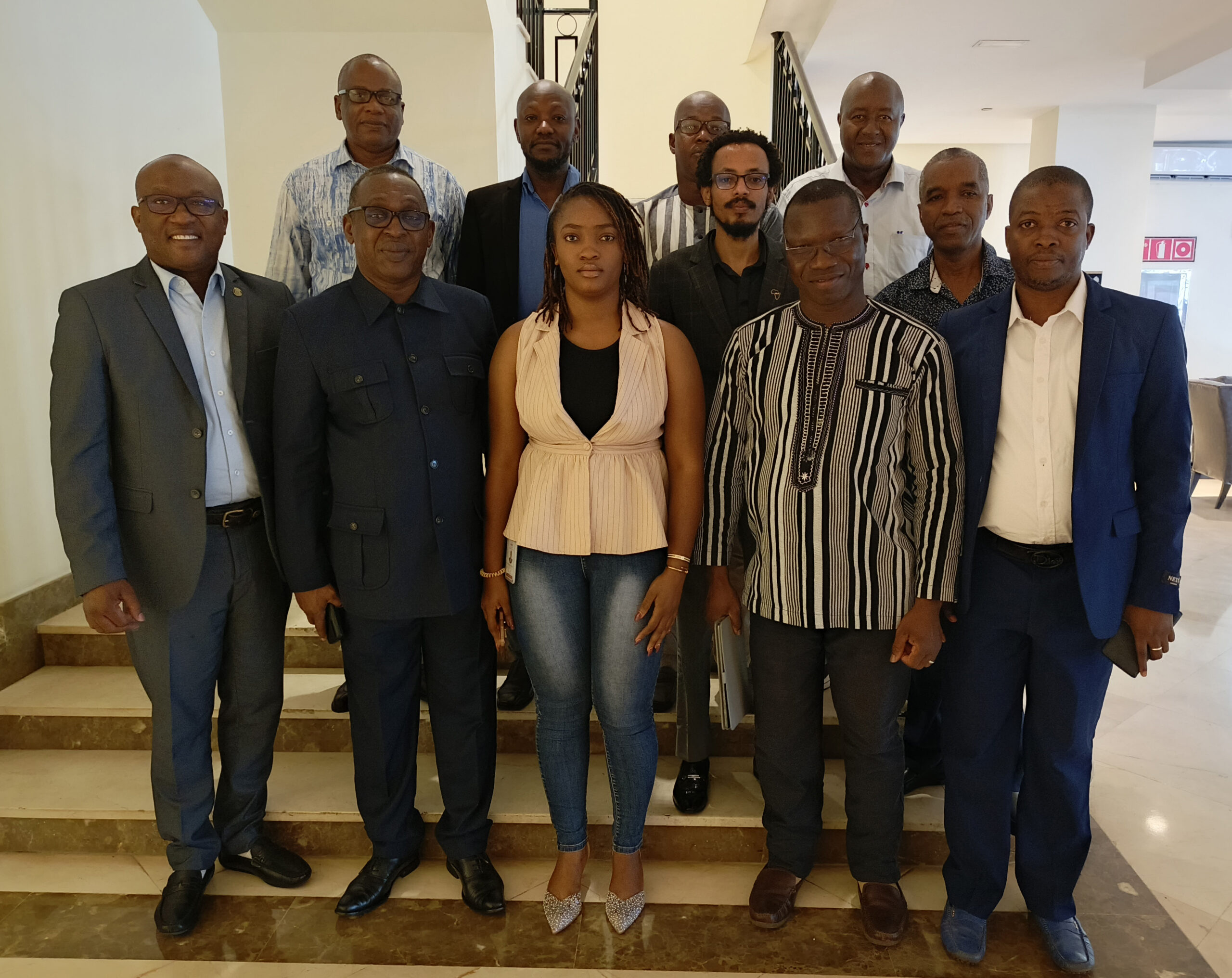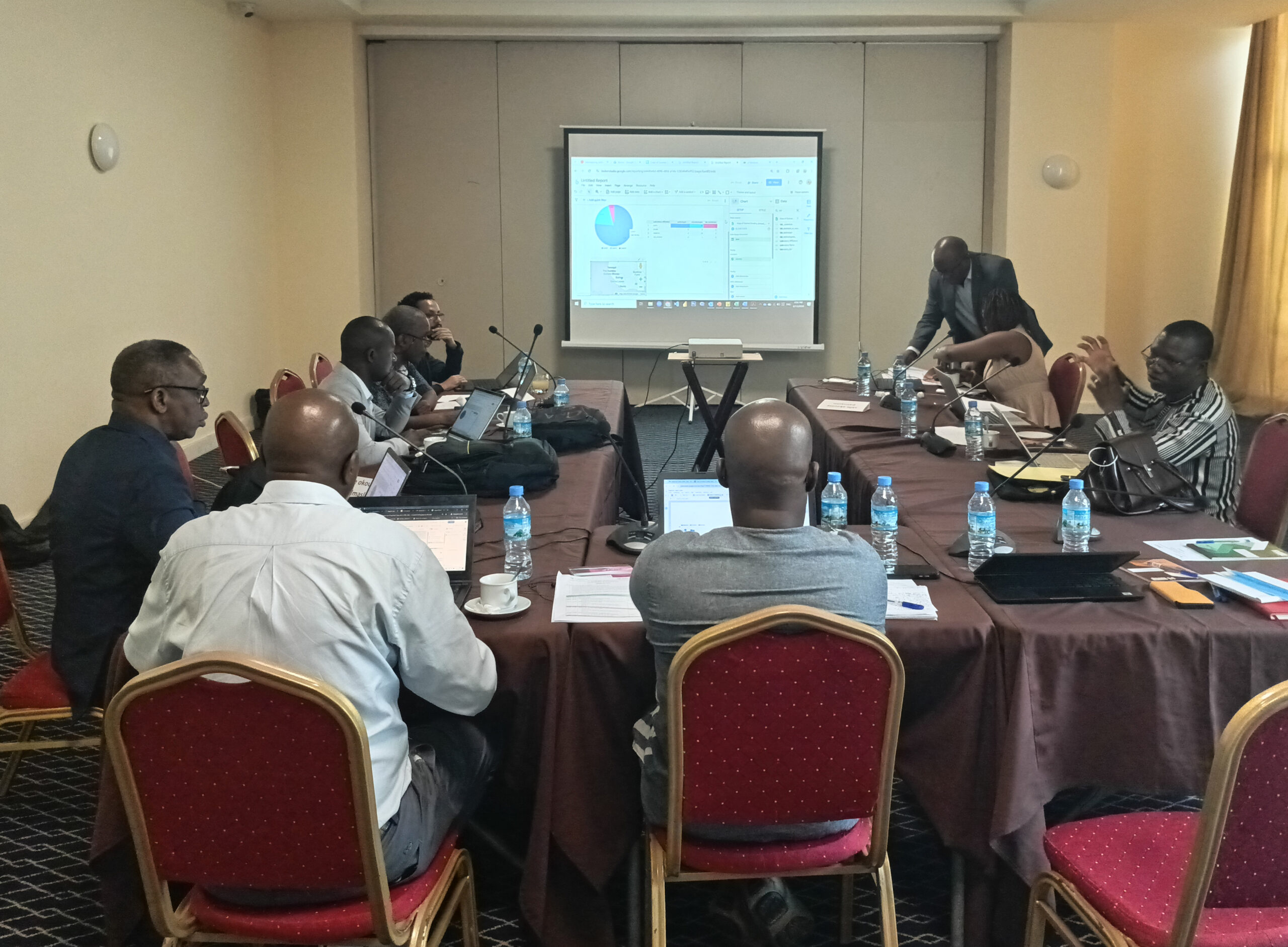 From 13-16 August 2024, the African Society for Laboratory Medicine (ASLM) in collaboration with the Africa Centres for Disease Control and Prevention (CDC) and the Guinea Ministry of Health, conducted a geographic information system (GIS) Laboratory Mapping Program (LabMaP) data validation and utilisation workshop in Conakry, Guinea. LabMaP is a flagship program of ASLM and Africa CDC and aims to establish a system for the collection, storage and analysis of GIS-linked data on laboratory capacity, systems and networks in Africa. LabMaP provides a solution to countries that are ready to inventory geo-located information on their laboratory systems, in support of evidence-based decision-making. The training aligns with the LabMaP objective of promoting the use of GIS laboratory mapping data to improve laboratory programs and services.
From 13-16 August 2024, the African Society for Laboratory Medicine (ASLM) in collaboration with the Africa Centres for Disease Control and Prevention (CDC) and the Guinea Ministry of Health, conducted a geographic information system (GIS) Laboratory Mapping Program (LabMaP) data validation and utilisation workshop in Conakry, Guinea. LabMaP is a flagship program of ASLM and Africa CDC and aims to establish a system for the collection, storage and analysis of GIS-linked data on laboratory capacity, systems and networks in Africa. LabMaP provides a solution to countries that are ready to inventory geo-located information on their laboratory systems, in support of evidence-based decision-making. The training aligns with the LabMaP objective of promoting the use of GIS laboratory mapping data to improve laboratory programs and services.
With funding from Deutsche Gesellschaft für Internationale Zusammenarbeit (GIZ) Gesellschaft mit beschränkter Haftung (GmbH), ten participants from Guinea’s Ministry of Health and FHI 360 have been trained to analyse data, identify laboratory system and network capacity gaps and develop network capacity strengthening strategies to improve the national public health surveillance and response systems for priority diseases, conditions and events at all levels of health systems. The successful implementation of these initiatives require a well-trained, competent and dedicated workforce.
Prof Mandiou Diakité, National Director of Laboratories, Ministry of Health and Public Hygiene praised the support of ASLM, partners and the experts who trained the country’s managers in mapping data management. He said, “Guinea has been mapping laboratories since 2020, but had limited capacity to analyze it. The training is an opportunity for Guinea to build the capacity of data managers to ensure continuous analysis of laboratory data that can guide laboratory management in decision-making and laboratory network improvements.”
Ms Therese Guilavogui, a participant from FHI 360, observed that the LabMaP program is, “helping us to identify the laboratory network’s capacity needs and develop tailored actions to address the gaps and optimise service coverage.”
ASLM has overseen the mapping of 27 countries and over 4,600 laboratories across the continent, in an effort to generate laboratory network intelligence that informs diagnostics network optimization. ASLM continues their commitment to helping countries across Africa, like Guinea, build resilient and responsive laboratory networks, to combat public health threats and deliver equitable access to quality diagnostic services.


